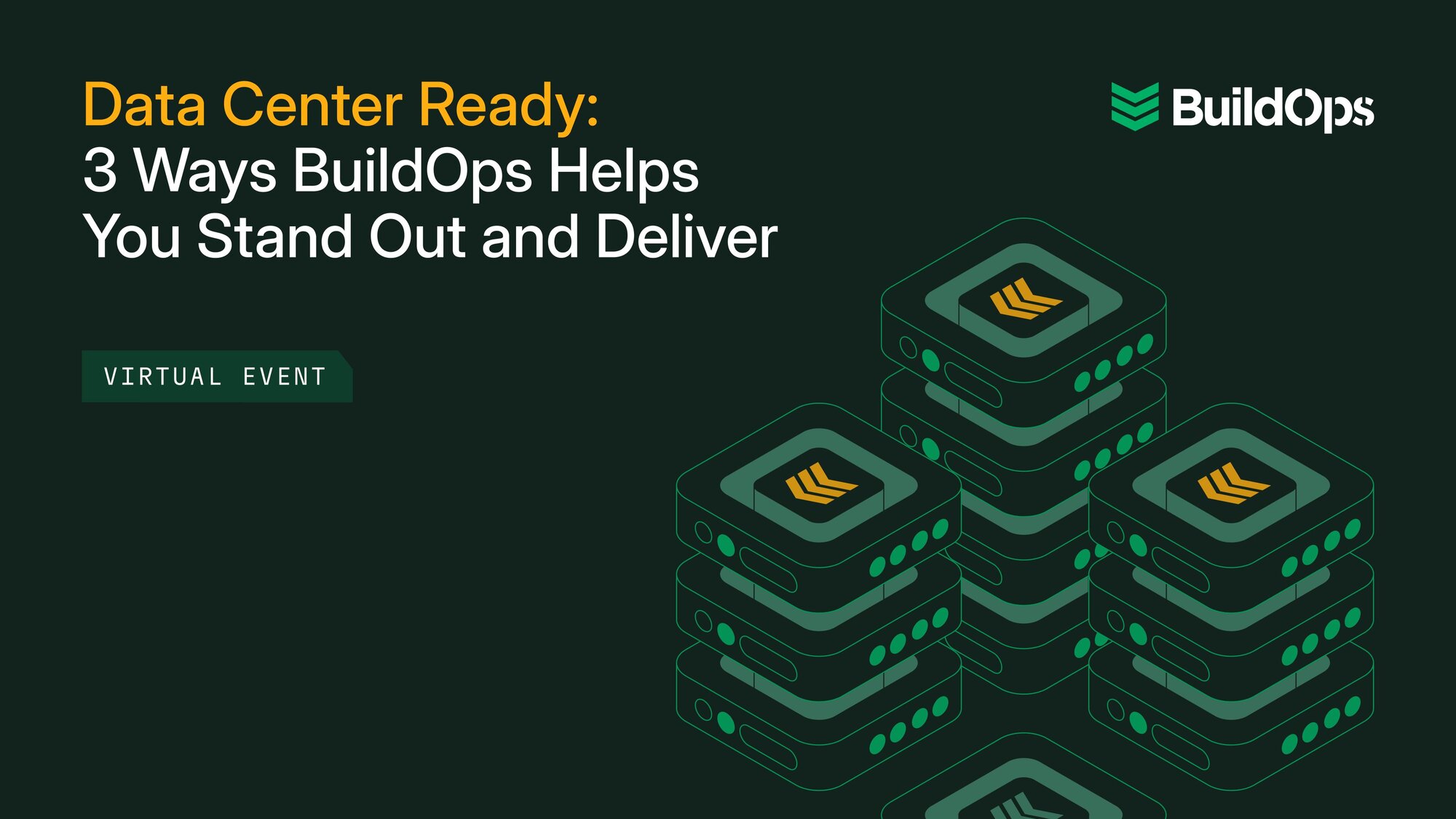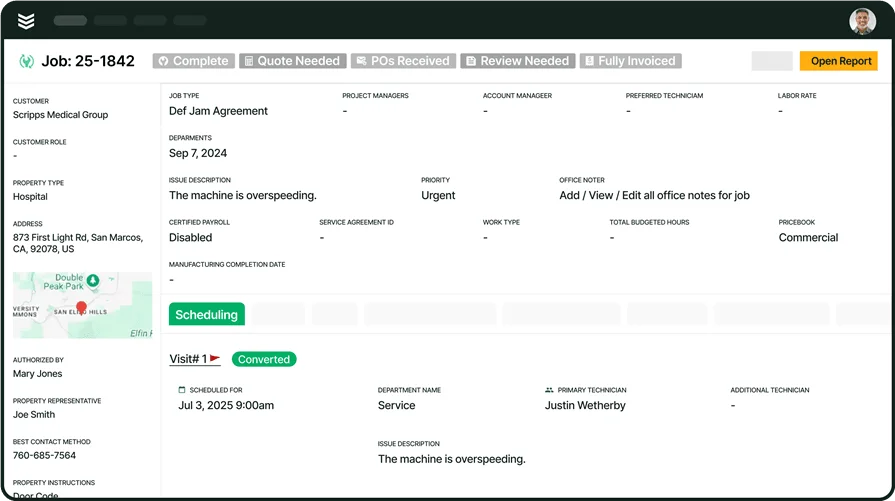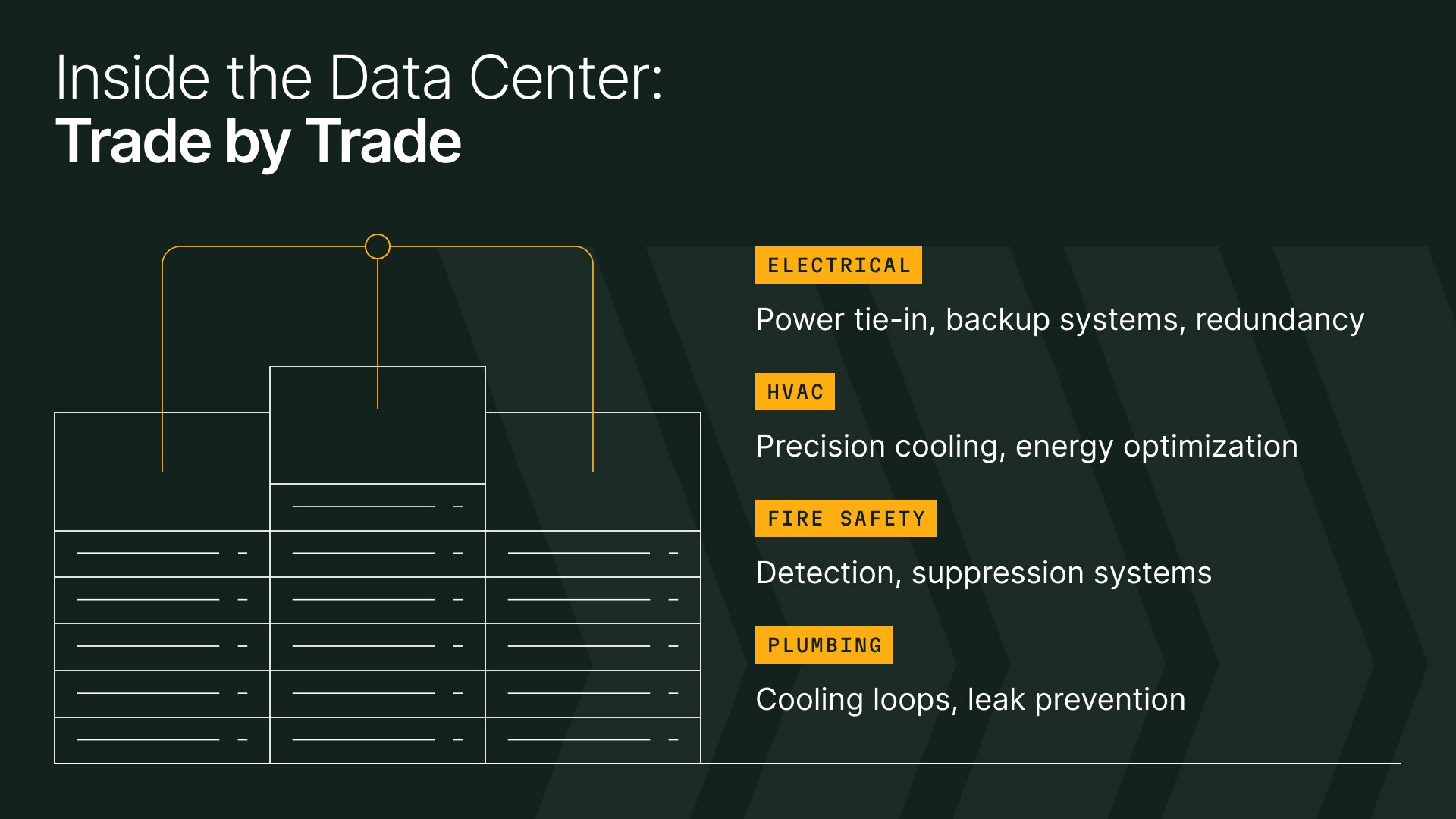Data centers are completely changing the commercial contracting landscape at an incredible pace. We tapped Matt Koenig from Haynes Mechanical Systems to break down exactly how companies like yours can ride this wave.
“The amount of money being poured into data centers right now is unlike anything we've seen. Even bigger than the dot-com boom in the early 2000s.” – Matt Koenig
Here's your quick-hit recap:
Why Data Centers? Why Now?
The data center surge is driven by two major factors: cloud hosting and AI. As the digital universe expands, tech giants and investors are pouring serious money into these facilities.
Traditional data center hubs like Virginia, Phoenix, and Dallas are already tapped out, driving explosive growth in secondary markets like Denver, Austin, and Iowa.
What makes data centers appealing to contractors?
- Profitability: Downtime isn't an option, making reliable HVAC, electrical, and plumbing contractors invaluable, and clients are ready to pay for the best.
- Growth: With commercial real estate facing challenges, data centers provide a stable alternative and a long-term growth opportunity.
Mega-Centers vs. Co-location: Know the Difference
Not all data centers are created equal:
- Enterprise Data Centers: Owned and operated by corporations (think Visa or hospitals), managing their own data.
- Co-location Facilities: Lease data storage space to multiple companies (like QTS). Contractors here must understand multi-tenant infrastructure and maintenance requirements..
Knowing these distinctions can dramatically improve your bid's appeal, as each type has unique requirements around security clearances, certifications, and operational needs.

BuildOps Turns Strategy into Workflows
Workflows to qualify faster, hit uptime targets, and win repeat Data Center work.
Skills and Certifications to Stand Out
You don't need to overhaul your entire business to break into the data center market. But specific skills and certifications are essential:
- Manufacturer-specific Training: Common brands include Liebert and Stoltz. Certifications in servicing these systems are a strong selling point. Familiarity with chillers from "the Big Four" (Trane, Carrier, York, Daikin) is also highly beneficial.
- Safety Certifications: OSHA 10 is essential. Data centers have strict safety and security protocols.
- Insurance Requirements: Expect requirements for a high-level insurance umbrella policy. Additionally, if you’re involved with building automation, specialized cybersecurity insurance may be required.
- Rapid Response: Matt emphasized that contractors need to be ready for quick turnarounds—often within 2-4 hours for emergencies.
“It's a different animal," Matt said. "Response times are tighter, and expectations are higher—but that's also why they're willing to pay more.”
How to Actually Get Data Center Contracts
Matt gave clear, actionable strategies for contractors looking to enter the booming data center market:
- Get proactive: Don’t wait for RFPs. Identify local data centers and directly engage Critical Infrastructure Managers or Data Center Operations Managers. Tools like BuildOps Sales + CRM can help contractors simplify outreach, organize opportunities, and turn conversations into contracts.
- Showcase Your Strengths: Clearly demonstrate in bids your team's certifications, proven experience, and ability to meet demanding data center requirements.
- Leverage Trade Associations: Groups like AFCOM or local chapters of the 7x24 Exchange offer vital connections, industry insights, and direct access to decision-makers.
Asset Management and Maintenance
Keeping data center clients happy goes beyond routine fixes:
- Detailed Reporting: Precise documentation of voltages, amperages, and temperatures is expected and often must integrate seamlessly with client systems.
- System Integration: Larger real estate management firms are increasingly requiring contractors to integrate their maintenance data directly into client software.
Matt’s Advice for Getting Started
If you're serious about entering the data center market, start here:
- Identify local data centers already in your service area and familiarize yourself with their operations and needs.
- Decide clearly if this market aligns with your long-term business goals.
- Start building relationships immediately—even informational conversations can set you up for future contracts.
“You might start small and make some mistakes—that’s fine,” Matt said. “Learn from them, adjust, and keep going. The opportunity here is enormous.”
You’ve learned what it takes to win data center work — now it’s time to make sure every crew, call, and workflow runs just as reliably.
Keep Data-Center Service On Schedule. BuildOps connects dispatch, tech mobile, and office workflows — so nothing slips through the cracks.

Operate Data-Center Service with BuildOps
Walk through vendor approvals and shift handoffs built for DC sites.



